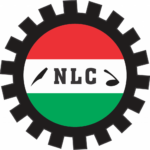BY JOSHUA B. OYEBODE
Nigeria bears in its tapestry strange paradoxes – it is a nation where most citizens live on a lonely island of poverty despite being encircled by a vast ocean of material prosperity and resources. One phenomenon broadly pinned as the cause of this tragic reality is corruption. Corruption is universal and itcontinues to destroy states neck-deep into it.
Since Nigeria’s independence in 1960, corruption has persisted and pervaded its entire structures by epic magnitude – both in the private and public domains of the Nigerian society. Public sector corruption accounts for most of corruption instances in Nigeria. Corruption exhibits itself commonly in the guise ofinflation of official contract fees, outright embezzlement of public fund, kick–backs on public procurements, and more. In1997, Transparency International (TI) ranked Nigeria as the most corrupt country among 52 countries surveyed for its Corruption Perception Index. 13 years later in 2010, TI ranked Nigeria 134th out of a total 178 countries. Finally, in 2024, Nigeria ranked a dismal 140 out of 180 assessed countries on the corruption index. The foregoing lends credence to the prominence of Nigeria as one of the most corrupt countries in the world, on a generational basis. The Independent Corrupt Practices and Other Related Offences Commission (ICPC) in itsreport on the Study of Illicit Financial Flows (IFFs) in Nigeria,published in May 2021, disclosed that Nigeria lost an estimated $400 billion to IFFs between 1960 and 2018. This nuisance of corruption may be submitted to be the fountain of Nigeria’s leading problems, either directly or remotely. It is a ginormous blockade to efficient resource mobilization and allocation, as the same are channeled away from implementation of pivotal policies for poverty alleviation and socio-economic development. It is consequently of little astonishment that Nigeria is designated as the world capital of poverty with over100 million Nigerians multi-dimensionally poor, representing about 63% of the nation’s population, per National Bureau of Statistics in 2022. Equally, generational corruption in Nigeriais accompanied by its corollary consequences such as abysmalservice delivery by governments at all levels to the public; as reflected in poor infrastructures, deplorable quality of education standards, measly-equipped health facilities, excessivecost of living and extreme social insecurity. From the purview of socio-political development, corruption has clipped the wings of the Nigerian nation from flying in the stratosphere of truly functional and efficient democracies. The conduct of the 2023 general elections grants plausibility to this assertion.
While successive governments since independence have attempted to curb the plague of corruption, the level of success has been generally low as the country remains deeply immersed in it. These generational corruption issues can be decimated through concerted, coordinated, and carefully orchestrated approaches targeted at their root causes. These approaches, as espoused here, proceed from the writer’s situational evaluation of the corruption issues peculiar to Nigeria, and have been decluttered into three prongs.
First, Nigeria urgently needs value-based and ethical political leadership. The potency of any fight against corruption is contingent upon exemplary political leadership. Nigeria’s incapacity to possess mass of exemplary, people-oriented, and ethical leaders can be substantially pinned for exacerbated generational corruption. A foremost route to pre-empt corruptionin Nigeria is active and incisive citizenry which certifies that only candidates who are credible are elected to political officesnationwide. Section 14 of the Nigerian constitution prescribesthat sovereignty belongs to the Nigerian people, not to the government or state. This sovereignty conferred on the people imports; first, a corresponding responsibility on them to elect proficient leaders without recourse to ethnic, religious, private or primordial considerations; and second, a responsibility to hold governments accountable and depose the same if in dereliction of constitutional duties. This is the groundwork for extinguishing corruption in Nigeria, and the success of any other effort to combat corruption rests upon it. The election of people-oriented, exemplary and ethical leaders necessarily imbues a domino effect across the public sector, private sector and national life – that corruption is unacceptable in any of its practices. Another corollary effect of value-based leadership is the fortification of the rule of law, as will be evidenced in the existence of strong and uncompromisable institutions of government such as the judiciary and audit agencies.
Second, de-commercialisation of public office is critical.Although politicians and public officials have a primary duty of service to the nation and populace, these platforms of true service have been incredibly commercialized in Nigeria. For illustration, a Nigerian senator earns N37.57 million per month.This amount is very ludicrous for a country where the minimum monthly salary for workers was reluctantly raised to N30,000 – an amount which 15 states of the federation failed to implementas of 2023. Although the minimum wage was reviewed in 2024up to N70,000, this raise is nonetheless insignificant given the hyper-inflation we have been experiencing since the inception of the Tinubu administration. There is therefore a need for the Revenue Mobilization Allocation and Fiscal Commission (RMAFC) to undertake a drastic downward review of the remuneration and allowances of all political office holders in Nigeria pursuant to the commission’s function and power under Paragraph N(32)(D) of the Third Schedule, Part 1 of the Nigerian Constitution. A successful downward review ultimately decommercializes public office and inevitably renders people-oriented candidates for it, as opportunists would have been dissuaded. Sadly, the Tinubu administration is further commercialising public office as evinced in their financial recklessness of renovating the Vice President’s residence with over N20 billion, earmarking billions for SUVs for National Assembly members, buying a new presidential jet worth billionsof naira despite the debilitating economic condition of the nation, amongst other things.
Finally, anti-corruption prosecution must be overhauled. Beyond theory and principle, anti-corruption agencies such as Independent Corrupt Practices and other Related Offences Commission (ICPC) and Economic and Financial Crimes Commission (EFCC) should possess real autonomous powersand authority. This is a condition precedent for them to investigate and prosecute high–profile perpetrators, and recoverstolen assets without fear or favor. It is informative that the present punishments for corruption in Nigeria are a travesty. Section 18(2) of the EFCC Act prescribes punishment for economic and financial crimes as imprisonment for a term not exceeding three years. In the same vein, Section 14(2) provides for compounding of offences whereby a perpetrator may negotiate to pay a fraction of stolen funds, thereby escaping prosecution. The foregoing provisions send a signal to corruption perpetrators that they can have a win-win scenario in which they retain proceeds of corruption while eluding prosecution. This brings a reminiscence to the deal between the Obasanjo-led government and the Abacha family wherein the latter agreed to return $1 billion out of the amount looted by Gen. Abacha in exchange for keeping back $100 million of the loot. These practices of superficially punishing corruption must be replaced by heavier punitive measures capable of the deterrence effect, and the same should be reflected through an amendment of extant anti-corruption legislations. Indonesia and Croatia are apposite examples that the punitive approach works in curbing corruption.
Anti–corruption measures work optimally when they are state-led, championed by collective actions from citizens, and granted external support from the international community. It is imperative that the proposed approaches above are altogether complementary to achieve desired outcomes. While Nigeria is famed for her oil economy and replete natural and mineral resources, her citizens must awaken to their ultimate duty of making the nation reflect its real blessedness by obliterating corruption from the land.
Joshua B. Oyebode is a sustainable development advocate and State Coordinator of Amnesty International Nigeria Supporters’ Group. He can be reached on assiduousjoe166@gmail.com






